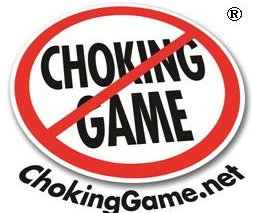
“Move out of your comfort zone. You can only grow if you are willing to feel awkward and uncomfortable when you try something new.” ~ Brian Tracy
Welcome to the September edition of Tweens & Teens. Recently, the following question was posed to me, so I’m using this month’s article to address it. Here’s the question:
Some parents worry that, by talking about certain dangerous activities (like the choking game, drugs, etc.), they might inadvertently put ideas into their kids heads that weren’t there to begin with and trigger their kids to experiment with these things. Should parents address issues like this head-on or wait to see if it becomes an issue with their kids?
For those who don’t know, the “Choking Game”, which has also been referred to as the “Fainting Game”, refers to intentionally cutting off oxygen to  the brain with the goal of inducing a temporary high. The problem is that when oxygen is cut off from the brain, via rope or belt, the person can suffocate and die.
the brain with the goal of inducing a temporary high. The problem is that when oxygen is cut off from the brain, via rope or belt, the person can suffocate and die.
According to Dr. Steve Field, chairman of the Royal College of General Practitioners in London, the fainting game is pursued primarily by children and teens “to get a high without taking drugs.” Children “aren’t playing this game for sexual gratification.” That’s another topic and is referred to as erotic asphyxiation.
There are warning signs that children may be trying the choking game, including marks or bruises on the throat, frequent severe headaches and redness in the eyes. Also, experts advise parents to look for belts, ropes or shoelaces tied in strange knots or found in unusual places.
But, back to the question, which is whether or not we should talk to our tweens and teens about dangerous activities head-on or whether we should wait. I bet you know my answer, especially if you’ve read my column before. The answer is…talk to them.
Think about how we talk to our toddlers about not touching hot stoves or running out in the streets. Do we wait until they get hit by a car before we tell them not to run out? Of course not. Why should talking to them as teenagers be any different? The answer to that question is…it shouldn’t. My wife and I try to be proactive as parents and talk to our children about situations before they become a problem.
Think about how many parents you’ve known that have kids who are having kids (teenage mothers if you don’t get my point). I know several, and their parents consistently avoided discussions they felt were embarrassing or because they felt inadequate about talking to their children about it. For one family I’m thinking of in particular, this led to even more serious issues, including alcohol, drugs, theft of family property and money, and jail time.
FYI…it was the parents who pressed charges and would not bail their 19-year-old daughter out of jail, which resulted in several weeks in jail while she was awaiting her hearing. She was sentenced to a rehabilitation facility for 8-12 months following her time in jail.
Let’s take this exact case and talk about it because it gets to the heart of the question initially asked. Her family lives in another state and I’ve been friends with her father for 35 years. I remember when he was in high school, got his first job, got married, and when his daughter was born. Needless to say, I know him quite well.
 I also know that during the time his daughter was growing up, neither her mother nor father talked to her about issues in life she may face. I was over at their house numerous times when she would ask difficult or sensitive questions, only to have them avoid the question and change the topic. I then remember commenting to my wife that “It’s only a matter of time before Jane gets pregnant and begins to struggle with life.” She was 12 at the time I first made that comment, and she was pregnant by age 17.
I also know that during the time his daughter was growing up, neither her mother nor father talked to her about issues in life she may face. I was over at their house numerous times when she would ask difficult or sensitive questions, only to have them avoid the question and change the topic. I then remember commenting to my wife that “It’s only a matter of time before Jane gets pregnant and begins to struggle with life.” She was 12 at the time I first made that comment, and she was pregnant by age 17.
If you’re wondering whether or not I believe talking with their daughter would have made a difference, the answer is an emphatic “Yes!” There were so many times they had opportunities to discuss things with her but chose to avoid the conversation for one reason or another. Ultimately, this avoidance has come back to haunt them.
I hate saying that about someone that I know so well, but it’s true. I remember talking to her father about having conversations with her; however, he would simply say,” I really don’t know what to say, so I’m just going to avoid everything and hope it turns out okay.” I’ve never asked him if he regrets not talking to his daughter but I can imagine what his answer would be.
In closing, I would like all parents to think about the situation described above and determine if there’s anything you can learn from my friend’s mistakes. Just so there’s no confusion, he will always remain one of my closest friends, and I’ll always be there to support him no matter what situation arises. But in this case, not being proactive has caused him a great deal of heartache and pain that may have been avoided with a few uncomfortable conversations.
Until next month,
billy
Click here to read previous articles on Tweens & Teens. Got a question for Dr. Jones, a child psychologist for Mercy Health? Send it to us (we won’t use your name) and we may feature it in an upcoming installment of Tweens & Teens.






